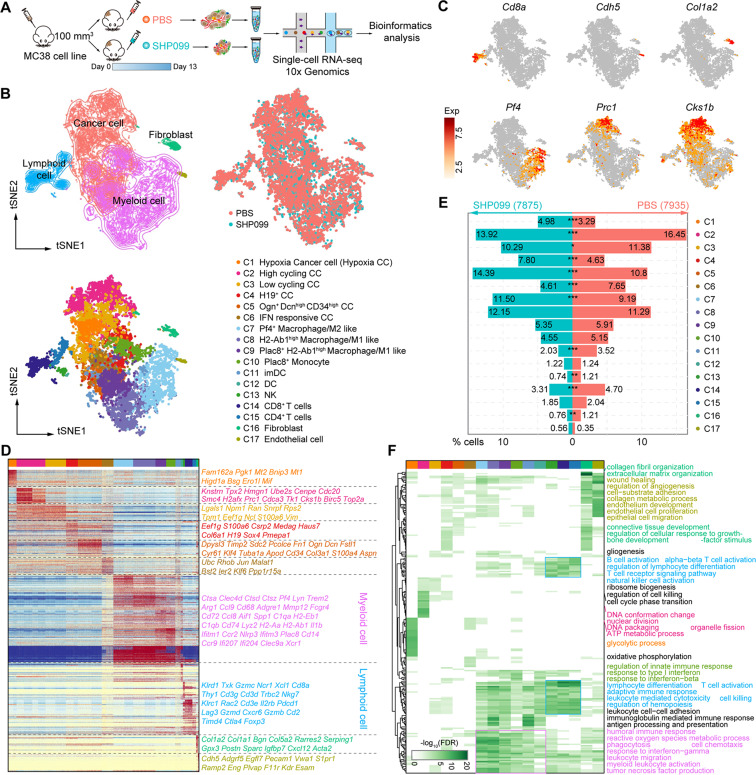Allosteric inhibition reveals SHP2-mediated tumor immunosuppression in coloncancer by single-cell transcriptomics.
Gao J, Wu Z#, Zhao M, Zhang R, Li M, Sun D, Cheng H, QiX, Shen Y, Xu Q, Chen H, Chen D*, Sun Y.
Acta Pharm Sin B. 2022 Jan;12(1):149-166. doi: 10.1016/j.apsb.2021.08.006
Colorectal cancer (CRC), a malignant tumor worldwide consists of microsatelliteinstability (MSI) and stable (MSS) phenotypes. Although SHP2 is a hopeful targetfor cancer therapy, its relationship with innate immunosuppression remainselusive. To address that, single-cell RNA sequencing was performed to explorethe role of SHP2 in all cell types of tumor microenvironment (TME) from murineMC38 xenografts. Intratumoral cells were found to be functionally heterogeneousand responded significantly to SHP099, a SHP2 allosteric inhibitor. Themalignant evolution of tumor cells was remarkably arrested by SHP099.Mechanistically, STING-TBK1-IRF3-mediated type I interferon signaling was highlyactivated by SHP099 in infiltrated myeloid cells. Notably, CRC patients with MSSphenotype exhibited greater macrophage infiltration and more potent SHP2phosphorylation in CD68+ macrophages than MSI-high phenotypes, suggesting thepotential role of macrophagic SHP2 in TME. Collectively, our data reveals amechanism of innate immunosuppression mediated by SHP2, suggesting that SHP2 isa promising target for colon cancer immunotherapy.
